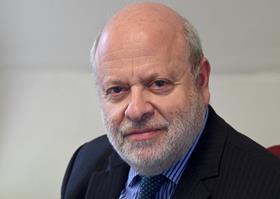This month the Law Society issued an important practice note on legal professional privilege.

Interestingly, the introduction discloses one of the main reasons why it is being issued now: ‘The last few years have seen increasing criticism of solicitors for the way in which LPP is asserted in some arenas, with growing attempts by some parts of government to encroach upon the sacrosanct nature of LPP… some regulatory bodies and enforcement authorities have voiced concerns that they sometimes see LPP being used to frustrate their efforts to undertake fully informed investigations… This practice note [aims to help] defuse some of the tensions that have begun to emerge around LPP.’
I agree. There is a need for a clear statement outlining the content, purpose and importance of LPP. Governmental and other institutional suspicions about LPP have been evident for years. The International Bar Association is taking similar action; it recently set up a working group with the aim of defending the broad concept of confidentiality, in which LPP falls.
The United Nations Office on Drugs and Crime says regulators and bars should remove existing uncertainties around the interpretation of professional secrecy
As proof of such attacks, we need only look at a recent document published by the United Nations Office on Drugs and Crime (UNODC). This body works on various themes, of which corruption is one, and that is itself broken down into various sub-categories, such as corruption involving vast quantities of assets. After a meeting in Oslo on that particular sub-category earlier this year, UNODC released a statement.
LPP (or professional secrecy) took up three of the 64 recommendations in the statement. Other recommendations also covered lawyers. In summary, the UNODC statement had this to say about lawyers:
l regulators and bars should remove existing uncertainties around the interpretation of professional secrecy by clarifying which activities are and are not protected;
l professional secrecy should protect only activities that are specific to the legal profession, such as ascertaining the legal position of a client, providing legal advice, or representing a client in legal proceedings, and not activities performed by lawyers that are purely financial or administrative in nature (handling client funds, acting as a nominee director or shareholder on behalf of a client, or acting as a formation agent of legal persons);
l lawyers should be required to conduct thorough due diligence on their clients, including maintaining up-to-date beneficial ownership information on legal entities, and should cooperate with law enforcement whenever a disclosure requirement for beneficial ownership information exists and make such information readily available to law enforcement. Reporting obligations should be considered when lawyers have reasonable grounds to believe that the conduct of their client is or may become illegal; and
l professional standards should be strengthened for lawyers (this recommendation falls under corporate formation agents, where it is said that lawyers should also be held accountable if they knowingly or negligently assist corruption, for example by setting up shell companies).
These are recommendations which exude great suspicion of professional secrecy and those who assert it. They reflect the same kind of suspicions which were evident in the European parliament’s response to the Panama and Paradise Papers scandals.
An EU directive about to come into force falls within similar territory, although it treats lawyers more kindly (Directive 2018/822, amending Directive 2011/16/EU as regards mandatory automatic exchange of information in the field of taxation in relation to reportable cross-border arrangements).
This is known as DAC 6 for short (6 because this is the sixth change). It needs to be implemented into national law by 31 December 2019, and those laws must become operational from 1 July 2020. Regardless of Brexit, our government has emphasised that the rules will remain in place post-Brexit to tackle international tax avoidance and evasion.
The essence of DAC 6 lies in its requirement that intermediaries – including lawyers – report certain cross-border tax arrangements. However, ‘Each member state may take the necessary measures to give intermediaries the right to a waiver from filing information on a reportable cross-border arrangement where the reporting obligation would breach the legal professional privilege under the national law of that member state’ (article 1(2) – paragraph 5), whereupon the reporting obligation shifts to another intermediary, if any, or to the relevant taxpayer.
I stressed ‘may’, quoted above. But it seems that most member states are indeed implementing LPP exceptions, including the UK – although there is doubt as to whether the UK’s exception will cover the full extent of LPP.
What is clear is that we need to defend LPP vigorously.
Jonathan Goldsmith is Law Society Council member for EU matters and a former secretary general of the Council of Bars and Law Societies of Europe. All views expressed are personal and do not necessarily reflect the views of the Law Society Council
































No comments yet